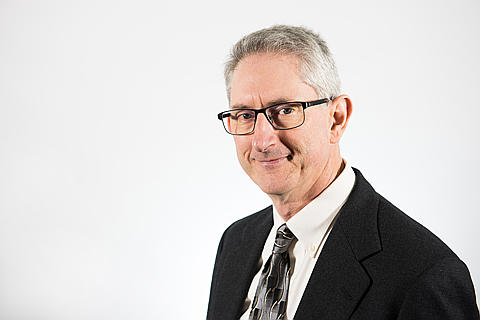Department of Nuclear Engineering

All Events
- This event has passed.
[Seminar] Nuclear Fuel Recycling in the U.S.: Will we ever get there?
September 3, 2020 @ 4:00 pm - 5:00 pm
Event Navigation
 Dr. Gregg J. Lumetta
Dr. Gregg J. Lumetta
Nuclear Chemistry & Engineering Group
Pacific Northwest National Laboratory
Abstract
Under the auspices of the U.S. Department of Energy, Office of Nuclear Energy (DOE-NE), an extensive study was performed to evaluate the benefits of various future fuel cycle scenarios. The top four recommended options from this study all involved recycling of used nuclear fuel to some degree.[1] Despite this, there is no serious effort in the U.S. to develop and deploy fuel recycling technologies. In contrast, other aspects of the promising fuel cycle options—design and development of advance reactors and fuels—are robustly pursued both through governmental and industrial investments. DOE-NE continues a very modest investment in fuel recycling technology development, but there is minimal engagement with industry concerning this subject. This situation can largely be attributed to confused and shifting policy regarding the back end of the fuel cycle.
One could argue that the DOE-NE investment in fuel recycling research over the last decade, although modest in funding level, has been mighty. Many important discoveries have been made by the Sigma Team for Advanced Actinide Recycle and the Off-Gas Sigma Team. More recently, the CoDCon project has demonstrated the great potential of real-time optical spectroscopic monitoring in terms of (a) developing and testing flowsheets at the laboratory scale, (b) monitoring and control of nuclear processing at an industrial scale, and (c) safeguards applications. Many of the developments that have occurred through the DOE-NE research program (e.g., Advanced TALSPEAK, ALSEP, advanced voloxidation techniques, spectroscopic monitoring, etc.) are in a prime position for testing with irradiated fuel. However, we appear to be stalled at this point. I do not profess to have an answer to the question posed in the title of this abstract; however, I will attempt to summarize the current situation, and offer some suggestions as to how the field of nuclear fuel recycling might be revitalized in the U.S.
Biography
Gregg J. Lumetta received his B.S. in Chemistry (1982) and Ph.D. in Inorganic Chemistry (1986) from the University of Missouri—St. Louis. He joined the Pacific Northwest National Laboratory in 1990, and currently serves as Laboratory Fellow. His research focuses on chemical separations, especially as applied to nuclear and radiological materials. Specific areas of study include solvent-extraction and ion-exchange systems for advanced nuclear fuel cycles, plutonium processing chemistry, the treatment of radioactive waste streams, radiological decontamination, and hydrometallurgy. The breadth of his work spans from the investigation of the fundamental coordination chemistry that underpins solvent extraction systems, to laboratory-scale testing of separation processes. He has pioneered work in the separation of transuranic elements from both legacy nuclear waste and from used nuclear fuel, including the separation of trivalent actinide elements from the chemically similar trivalent lanthanide elements. Dr. Lumetta is an expert in actinide chemistry and leads efforts in synthesizing plutonium compounds relevant to nuclear forensics.
Thursday, September 3. 2020
4:00 pm seminar
https://ncsu.zoom.us/j/93090687720

